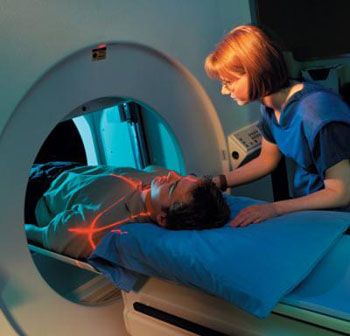Study Highlights Importance of Regular Lung Cancer Screenings for Higher Risk Patients
By LabMedica International staff writers
Posted on 29 Aug 2016
Researchers have found that patients who tested negative for lung cancer (LC) in an LDCT (low-dose helical computed tomography) screening, but later went on to develop lung cancer within the following two years, had poorer outcomes than patients who initially had a non-cancerous positive screen test result.Posted on 29 Aug 2016
Lung cancer is one of the most complex cancers, both at the molecular level and through its clinical behavior. Based on the large randomized “National Lung Screening Trial” study, the US Preventive Services Task Force recommends regular LC screenings with LDCT for people between ages 55-74 who have smoked at least one pack of cigarettes per day for 30 years or more. The recommendations also include heavy smokers who have quit within the past 15 years.

Image: A new study shows helical CT scans may reduce lung cancer mortality (Photo courtesy of MedicineWorld).
The new study, by researchers at the H. Lee Moffitt Cancer Center & Research Institute (Tampa, FA, USA), used the data from the National Lung Screening Trial to determine the outcomes of patients screened by LDCT according to their initial 12- and 24-month screening results. They found that patients who had a negative initial screening but tested positive for lung cancer at the 12- or 24-month screen had lower survival and higher mortality rates than patients who had a positive initial screen that was a non-cancerous abnormality but developed lung cancer in subsequent screens.
“Our findings suggest that individuals who originally present with negative screens and develop lung cancer 12 or 24 months later develop faster growing, more aggressive cancers that arose from a lung environment previously lacking abnormalities,” said Matthew B. Schabath, PhD, of Moffitt’s Cancer Epidemiology Program. The data also highlight the importance of continued lung cancer screening in high-risk patients. “Although tobacco cessation is one of the most important ways to reduce your risk of lung cancer, screening is a proven method to detect lung cancer earlier when it is easier to treat. Moreover, screening is not a one-time event. For it to be effective, high-risk individuals need to be screened on regular yearly intervals,” said Dr. Schabath.
The study, by Schabath MB et al, was published August 10, 2016, in the journal PLOS One.
Related Links:
H. Lee Moffitt Cancer Center & Research Institute













